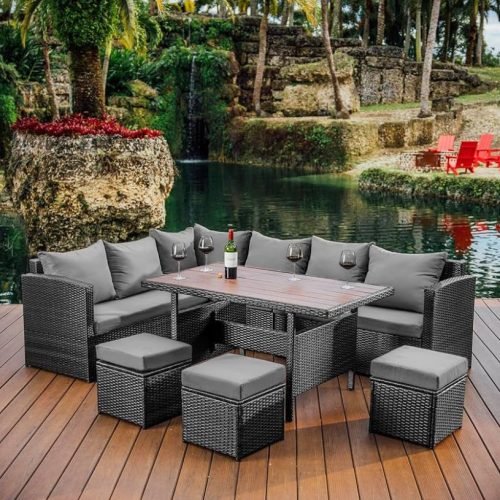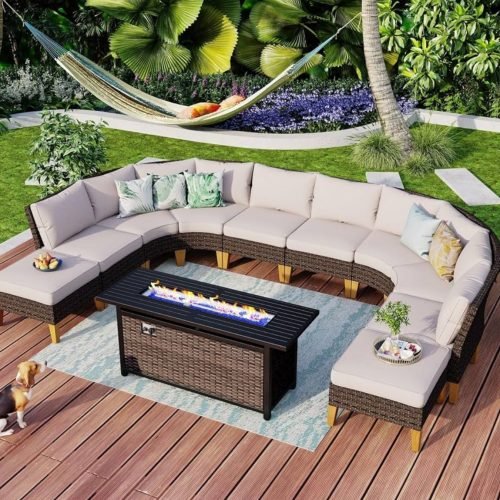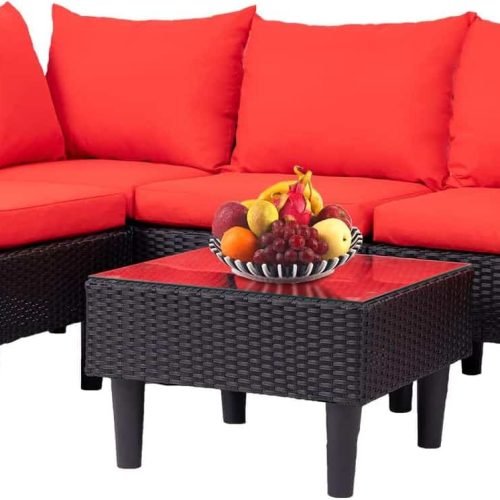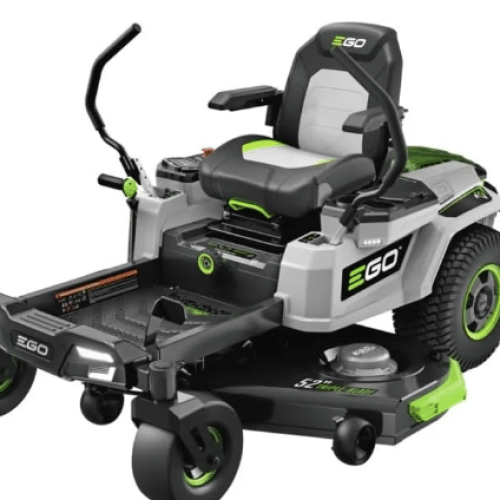Its JV Charles founder of Garden Josiah. Hope all is well! The average water pressure for a sprinkler system in the Mid-West ranges from 30 psi for spray heads to 45 psi for rotor heads in residential and small business applications1This pressure is key for an ideal sprinkler system pressure. It ensures your lawn or garden gets water evenly and efficiently. Important stuff for sure!
Sprinkler systems help save water and keep plants healthy. They need the right water pressure to work well. For example, spray heads need 30 psi, while rotor heads need about 45 psi2. Pressures over 80 psi can harm your plumbing system1.
To prevent damage, you can adjust the pressure with special tools. These tools, like pressure regulators and flow control valves, help keep the residential sprinkler pressure right. This makes your irrigation system more efficient and helps save water.
Key Takeaways
- The average water pressure required for sprinkler systems varies between 30 psi for sprays and 45 psi for rotors1.
- Maintaining an optimal sprinkler system pressure ensures landscape irrigation efficiency and water conservation.
- Using pressure regulators and flow control valves helps prevent damage caused by pressures exceeding 80 psi1.
- A typical sprinkler system should not exceed a flow rate of 12 gallons per minute to avoid water hammer2.
- Adjustments such as renozzling sprinkler heads and using modern apps for remote control improve irrigation efficiency1.
Introduction to Sprinkler Systems and Water Pressure
Sprinkler systems are key for modern irrigation. They use pipes, valves, and heads to spread water evenly. They help both homes and businesses stay green and healthy. Super cool.
What is a Sprinkler System?
A sprinkler system is a way to water plants and lawns. It has pipes, valves, and sprinkler heads. It makes sure plants get the water they need, keeping them healthy and green.
Importance of Proper Water Pressure in Sprinkler Systems
Water pressure is very important for sprinkler systems. It affects how well the system works and how much water it uses. For example, high-rise buildings need more pressure than smaller homes.
For a small townhouse, the pressure needed is lower. But, the last sprinkler head might need an extra 0.5 bar3. This ensures water is spread out right and saves water.
Knowing how much water weighs helps design better systems4. The right water pressure also cuts down on losses from height and pipe friction3.
Understanding Water Pressure in Sprinkler Systems
Water pressure is key for sprinkler systems to work well. Knowing what water pressure is and how to measure it helps fix sprinkler issues. Majority of the time anyway!
Definition and Measurement of Water Pressure
For home sprinkler systems, the best pressure is between 40 to 60 psi. This can change based on where you live.
Rotors need 45 psi to work best, but they can handle 25 to 65 psi. Spray heads do best at 30 psi, but they can handle 15 to 30 psi5.
To check if your sprinkler system is working right, you need to measure the water pressure. This means looking at both static and dynamic water pressure.
Static vs. Dynamic Pressure
Static water pressure is measured when the water isn’t moving. It’s taken at the source. This gives a starting point for checking the system’s pressure. Its a great tip!
Dynamic pressure in irrigation systems is about the water moving and the friction it faces in pipes. A drop in dynamic pressure can mean leaks, clogged nozzles, or bad sprinkler heads.
NFPA 25 rules make sure fire sprinkler systems have enough water and pressure. Engineers use a top-down and bottom-up method to figure out what’s needed6. Checking water pressure regularly helps keep the system working well.
What is the Typical Water Pressure for a Sprinkler System?
The average pressure for residential sprays is about 30 psi. Rotors need around 45 psi1. Knowing this is key for good irrigation. But, the right pressure can change based on the system’s design2.
Keeping the pressure even is vital for your lawn or garden. If the pressure is off, some spots might get too much or too little water. This can harm your plants and waste water. So, it’s important to check and adjust the pressure regularly. Its simple so dont sweat it!
Today’s sprinkler systems often have apps to check water flow. These apps help keep the pressure right1. Also, using the right water pressure regulators is crucial. They should not go over 80 psi to avoid plumbing problems1.
Following these tips can make your irrigation system work better. Every sprinkler system is different, based on its design and the type of heads it uses. So, keeping the water pressure just right is essential for a well-functioning system at home.
| Sprinkler Type | Average Pressure (psi) | Comments |
|---|---|---|
| Sprays | 30 psi | Used for residential systems1 |
| Rotors | 45 psi | Used for larger areas1 |
| General Residential | 40 – 80 psi | Varies by type of emitters2 |
Factors Affecting Sprinkler System Water Pressure
Keeping the right water pressure in your sprinkler system is key for good irrigation and healthy plants. Several things can change the water pressure, like the type of sprinkler head, irrigation design, how it’s installed, and friction in pipes. Ewwww friction in pipes!
Type of Sprinkler Head
Different sprinkler head types need specific pressures to work right. For example, rotors need about 45 PSI, while sprays do best at around 30 PSI. If sprinkler heads get clogged or damaged, it can mess up water flow and lower pressure7.
Using the right pressure for each sprinkler head can really help your irrigation system work better.
System Design and Installation
The design and installation of your sprinkler system are very important for keeping the right water pressure. If it’s installed wrong, like with the wrong size pipes or closed backflow preventers, it can cause a big drop in pressure7. It’s crucial to design and install your system well to make sure water pressure is even everywhere.
Pressure Loss Due to Friction
Friction in pipes and parts like control valves and backflow preventers can also lower system pressure. The 5-4-3-2-1 rule helps guess how much pressure will be lost in different parts. For example, keeping household pressure below 60-70 PSI can prevent damage to appliances8.
Regular upkeep and accurate pressure checks are key to fighting off pressure loss from friction78.
Experts suggest checking shut-off and main water valves to make sure your system has the right pressure7. If you’re always dealing with low water pressure, getting a pro to check it out can help find and fix the problem. Using top-notch parts and sticking to the recommended 50-65 PSI for irrigation systems is also important8. Star Sprinkler Systems, Inc. offers installation, repair, and winterization services to help with these issues7.
Impact of Water Pressure on Irrigation Efficiency
Water pressure is key to irrigation efficiency in sprinkler systems. It ensures water is distributed evenly and conserved. Both low water pressure symptoms and high pressure issues can harm sprinkler system performance. It’s important to know how they affect it.
Effects of Low Water Pressure
Low water pressure can make sprinklers not work right. This leads to dry spots in the yard. Systems with low pressure might not spray water well9.
Most residential sprinklers need 40 to 60 psi to work best. Fixed spray heads do best at 30 psi10. Without enough pressure, up to 50% of water can be wasted10.
Effects of High Water Pressure
High water pressure can also hurt sprinkler system performance. It can cause misting and evaporation, wasting up to 35% of water10. High pressure can also damage the system, breaking heads and pipes9.
High pressure can increase water discharge by up to 80%, wasting a lot of water10. Keeping pressure between 40-60 psi helps water spray evenly and extends system life9.
Measuring and Adjusting Water Pressure in Sprinkler Systems
To make your sprinkler system work its best, you need to watch and adjust the water pressure. Most systems do well with water pressure between 40 and 60 pounds per square inch (psi)11. We’ll cover how to measure and adjust this pressure to keep your system in top shape.
How to Measure Water Pressure
Homeowners can use a pressure gauge on a hose bib to check water pressure. These gauges cost little, with some good ones around $2512. Turn on the water and read the psi on the gauge. The pressure can change during the day11.
For more accurate readings at each sprinkler head, use a pitot tube. This ensures each head gets the right amount of water11.
Installing Pressure Regulators and Flow Control Valves
If your system has too much water pressure, consider installing pressure regulators. You can put them at the main water connection or on each zone’s control valves. High pressure can damage your system, like pipes and sprinkler heads11.
If the pressure is too low, check that all valves are open and look for leaks or broken heads13. Adjusting the pressure right helps your system work well and water your lawn evenly.
Common Problems and Solutions
A few common problems can mess with your sprinkler system’s efficiency. Low pressure might stop sprinkler heads from rising, causing uneven watering11. High pressure can make water spray too fine, wasting a lot of water13.
These problems can often be fixed by making smart adjustments or using pressure regulators. If needed, you can also get help from professional contractors for system checks and upgrades12.
FAQ
What is a sprinkler system?
A sprinkler system helps save water and keeps plants healthy. It has pipes, valves, and heads that spread water evenly. This makes it efficient for lawns and gardens.
Why is proper water pressure important in sprinkler systems?
Good water pressure means water is delivered well and evenly. It helps save water and keeps plants healthy. Without it, you might see leaks or damage to the system.
What is water pressure and how is it measured?
Water pressure is the force water has in pipes. It’s measured in pounds per square inch (psi). You can use a pressure gauge on a hose bib to check it.
What is the difference between static and dynamic water pressure?
Static pressure is when water is still. It’s the base for adjusting the system. Dynamic pressure is when water is moving. It includes friction from pipes and parts.
What is the typical water pressure for a residential sprinkler system?
For homes, the best pressure is about 30 psi for sprays and 45 psi for rotors. This ensures they work well and save water.
How does the type of sprinkler head affect water pressure requirements?
Different heads need different pressures. Sprays need 30 psi, while rotors need 45 psi. This ensures they cover the area well.
How do system design and installation impact sprinkler pressure?
The design and setup of the system affect pressure. A well-designed system has balanced pressure. This means water is delivered efficiently across the landscape.
What causes pressure loss due to friction in a sprinkler system?
Friction causes pressure loss as water moves through pipes and parts. The 5-4-3-2-1 rule helps estimate this loss. Adjustments are made for better system performance.
What are the effects of low water pressure in a sprinkler system?
Low pressure can make sprinklers not work, cause uneven coverage, and lead to brown spots. To fix it, check for leaks and adjust heads or nozzles.
What are the effects of high water pressure in a sprinkler system?
High pressure can cause misting, water loss, and damage. It makes irrigation less efficient. Using pressure regulators can help solve these problems.
How can homeowners measure the water pressure of their sprinkler systems?
Homeowners can use a pressure gauge on a hose bib to measure pressure. It’s best to check at different times to see how pressure changes.
How can pressure regulators and flow control valves be installed?
Pressure regulators can be put at the house connection or on control valves. Flow control valves adjust water flow for each zone’s pressure needs.
What are common problems related to water pressure, and how can they be solved?
Issues like low or high pressure can cause problems. To fix them, check valves for leaks, make sure valves are open, install regulators, and do regular system checks.






